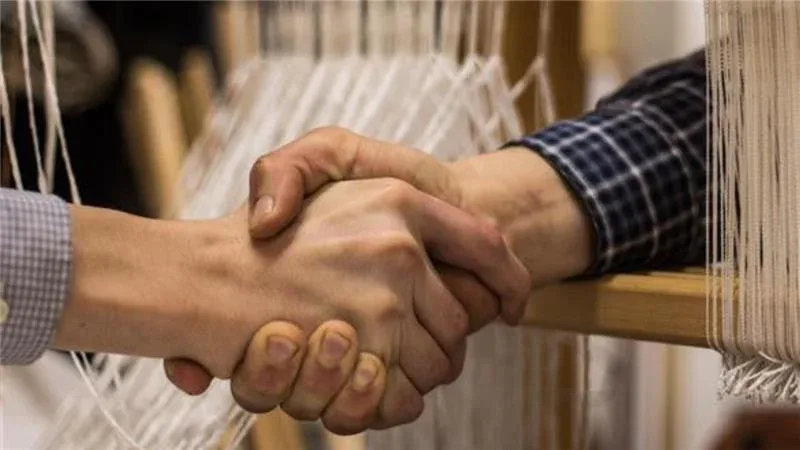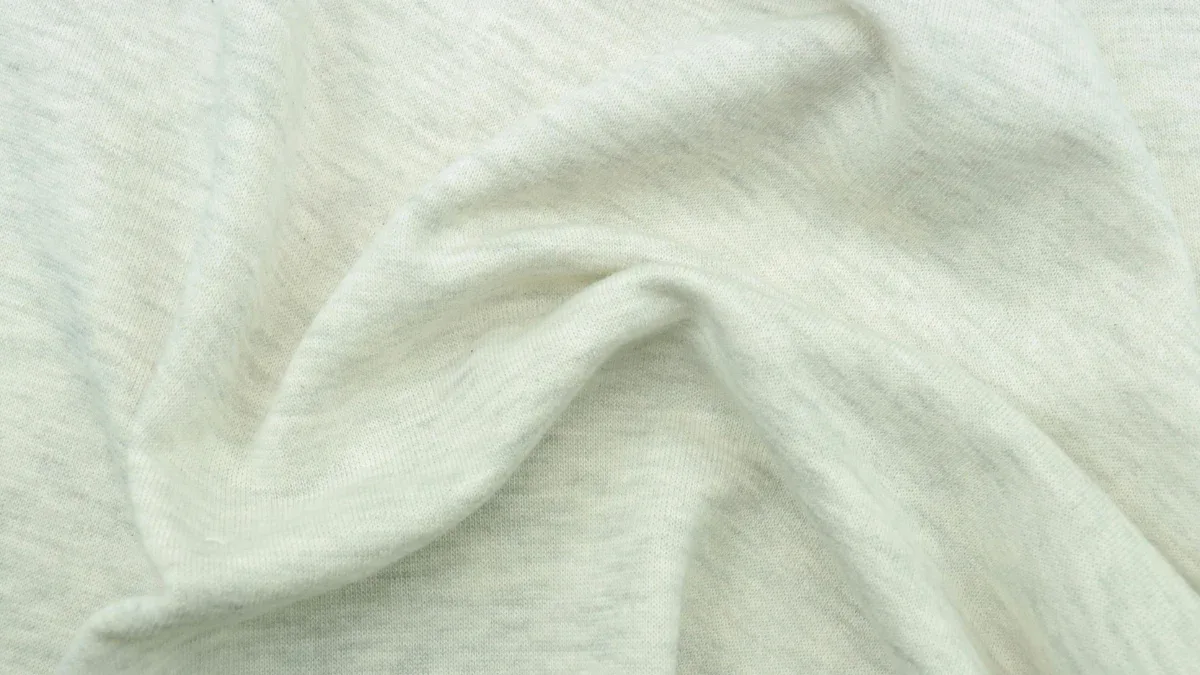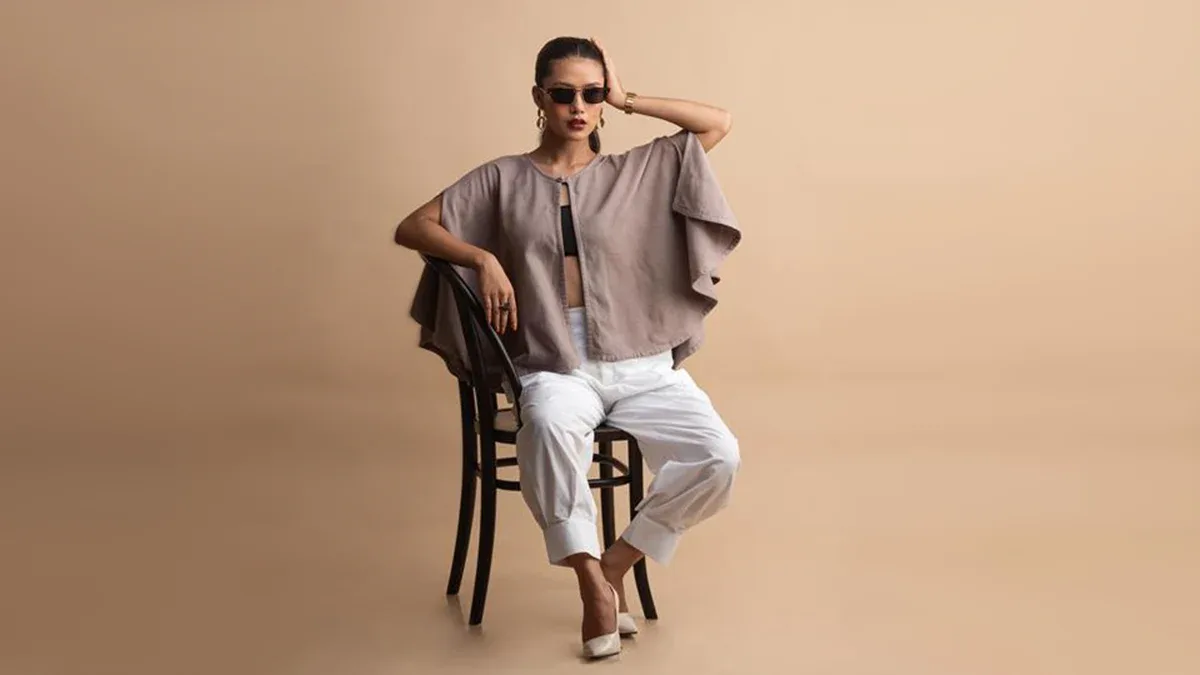Sustainable fabric manufacturers are transforming the fashion industry in its thought process, design and supply. They do not just provide eco-trends, they create the whole ecosystem of conscious production, based on environmentally friendly techniques. Using handcrafted textile materials, attire made from natural fibres of cloth, and backed by Indian textile companies, this trend fits fashion to a greener future.
Sustainable fabrics transforming fashion
Heritage meets innovation
In the weaving rooms of Rajasthan, Assam, and Bengal, it is something more than cloth that age-old looms spin. It’s a memory. It’s culture. Suppliers of sustainable fabric accept those roots and incorporate them by combining new artisan honouring and environment-friendly practices. Modern sustainable fabric makers in India do not renounce the traditional approaches but take them to a new level. They prefer waterless treatment or herbal dyes, in place of immense dye pots, full of synthetic colouring. They prefer the use of solar instead of fossil-based mills and utilise smaller facilities. The outcome is a fine combination of cultural craft and climate awareness, hand in hand.
Certifications catalyse consumer trust
Contemporary consumers are desperate to see evidence. They want to learn that the shirt against their back did not hurt a farmer, contaminate a stream, or suffocate landfill soil. The sustainable fabric suppliers react to this by providing certified textiles inspection of the global environmental and ethical standards.
Certifications such as GOTS, OEKO-TEX and Fair Trade are silent promises that are sewn on garments. Being able to collaborate with India-based textile manufacturers that focus on transparency and traceability becomes a selling point, but more than that, it becomes a prerequisite for designers and brands. These certifications eliminate greenwashing and create a true bond between the material and fashion enthusiasts.
Artisan focus enriches the economy
Other than the cloth, there is the community. Manually produced textile products are filled with maker fingerprints, most of the time, by women and family units in the belt of rural India. With the rising needs of such ethical textiles, the weavers who were previously being shoved to the periphery of the factories are returning to the loom.
Indian fabric producers provide stable employment, good salaries, and recognition. This is not at all charity but an excellent partnership. It runs through every sari silk or organic cotton bolt. The ripple effect is profound- there is better schooling, access to healthcare expands, and migration decreases. Sustainability in this case is imbued with the continuation of lives rather than the sustenance of ecosystems.
Resource‑smart fibres in focus
The fashion industry is a water-sipping, carbon-breathing monster. However, new-age textile manufacturers reverse this trend. Sustainable textile producers are moving towards fibres that demand less to deliver more. There is hemp, bamboo, organic cotton, and linen, all providing robust, soft, breathable fabrics that require minimal chemical treatment and many fewer gallons of water.
Such natural materials of clothing are durable, biodegradable, and compost-friendly. By adopting such materials, brands abandon the petroleum-based synthetics and take a small step towards a textile future that will not stifle the planet.
Reducing the trade‑off between scale and ethics
Indie designers or new fashion companies lacked substantial budgets or huge orders to find access to sustainable textiles in the past years. The difference is narrowing. A lot of the suppliers of sustainable fabrics have adopted low minimum order quantities and assistive design services.
They see that scale does not need to be at the expense of ethics. This adaptability gives room to new voices of fashion, those that are led by creative impulse and an aware conscience and not just by volume. Because of that, capsule collections, slow-fashion brands, and unique textile narratives land on runways, in boutiques, and in closets.
Boosting premium sustainable offerings
Green doesn’t mean plain anymore. The image of rough, scratchy eco-fabrics is being replaced by silky organics, luminous muga silks, and precision-woven khadi. Natural clothing fabrics crafted today are luxurious yet responsible. Sustainable fabric suppliers have entered the premium tier, catching the attention of global labels. These partnerships show that opulence can coexist with ethics. Fine clothing no longer must sacrifice sustainability for style. In fact, the new luxury is knowing your outfit harmed nothing in its making.
A ripple effect across suppliers
With the growing demand for ethical fabrics, traditional mills face pressure. They are watching niche suppliers gain momentum and, in response, reevaluating their methods. Cleaner processes, improved worker conditions, and eco-certification, these aren’t trends anymore; they’re survival strategies. What begins with a few visionary suppliers often shifts an entire sector. Slowly, this ripple changes not just fashion but textiles as a whole.
Sustainable fabric suppliers aren’t just reweaving how fashion looks, they’re reshaping what fashion means. They champion truth over trend, culture over convenience, planet over profit. By returning dignity to handmade textile products and celebrating natural clothing fabrics, they stitch a future where beauty respects both maker and earth. The fashion industry no longer needs to choose between aesthetics and ethics. Through the silent revolution of fibre, we see a new fabric rising.
Svarna stands at the forefront of this movement. Based in Kolkata since 2000, they lead among sustainable fabric manufacturers in India, known for ethically sourced natural clothing fabrics. Their collections include muga, khadi, linen, bamboo, and pashmina. With a mission to preserve traditional craft and protect the environment, Svarna supplies handmade textile products to top designers and forward-thinking fashion houses worldwide.
FAQs
1: What do sustainable fabric suppliers offer the fashion industry?
Eco-friendly, natural clothing fabrics for ethical fashion.
2: Why are sustainable fabric manufacturers in India gaining global attention?
They blend tradition with sustainable innovation.
3: How are textile manufacturers in India contributing to sustainable fashion?
By producing handmade, low-impact fabrics.



